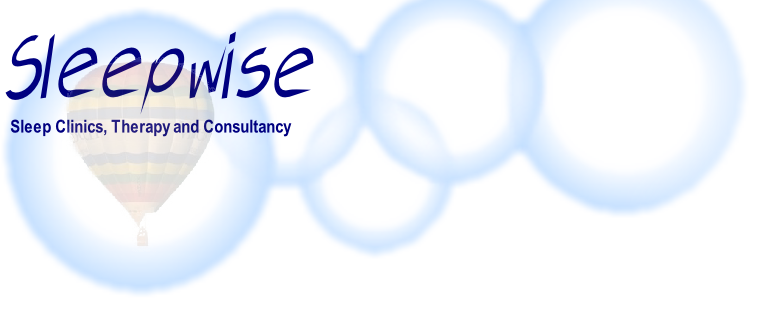

Sleepwise Sleep Clinics and Therapy
Sleepwise provides professional sleep therapy services and advice, including clinics, one-

Sleep & Stress
Consultants
since
1999




Sleepwise Sleep Clinics and Therapy
Sleepwise provides professional sleep therapy services and advice, including clinics, one-

Sleep & Weight
There is definitely a relationship between poor sleep and being overweight.
Being overweight contributes to increased snoring, difficulties breathing and, if obese, more serious conditions such as sleep apnoea. Getting comfortable in bed can be another issue for overweight people.
However, research has also suggested that not getting enough sleep can actually make you fat. And this can become a vicious circle. Hormones produced during sleep normally stop -
It works like this:
- Adipocytes (your “fat cells”) release leptin to the bloodstream to signal sufficient fat stores; leptin therefore acts as a natural appetite suppressor. When everything is working properly, leptin helps to keep adipose tissue (fat) within a normal, healthy range. However, diet and stress can lead to chronic inflammation and leptin resistance. Chronic inflammation increases levels of C-
Reactive Protein which binds to leptin, preventing it from doing its job. When leptin resistance occurs, the body does not get the signal to stop eating, leaving one feeling hungry even after having consumed enough calories. Sleep deprivation also lowers the levels of leptin. - The stomach releases ghrelin when it is empty to signal hunger. (That’s an oversimplification; ghrelin is suspected to be associated with the body’s long-
term weight regulation – levels are higher in obese people than lean people.) Sleep deprivation raises the levels of ghrelin.
Short sleep time affects leptin and ghrelin, and test results from people getting 4 hours per night or less will often show lower leptin levels and higher ghrelin levels in the blood plasma. With sleep deprivation, low leptin and high ghrelin can give powerful dual signals that the body has an energy deficit, thus increasing food intake. It’s a double whammy hormone hit that makes you want to eat more. The brain is getting signals that the body is starving, so you crave food.
Losing Some Fat
Remember, losing fat is more important than losing weight. You want to get slimmer and it’s the fat that needs to go. Starvation diets and many fad diets can cause damage and muscle loss, sometimes even damage heart muscles. Also, feeling hungry can keep you awake and cause the problems described above.
We suggest that a good starting point for your plans to lose some fat are these two web sites run by Sleepwise associates:
Our research continues.
If you want to give us feedback on the above please send by email to associates@ sleepwise.co.uk